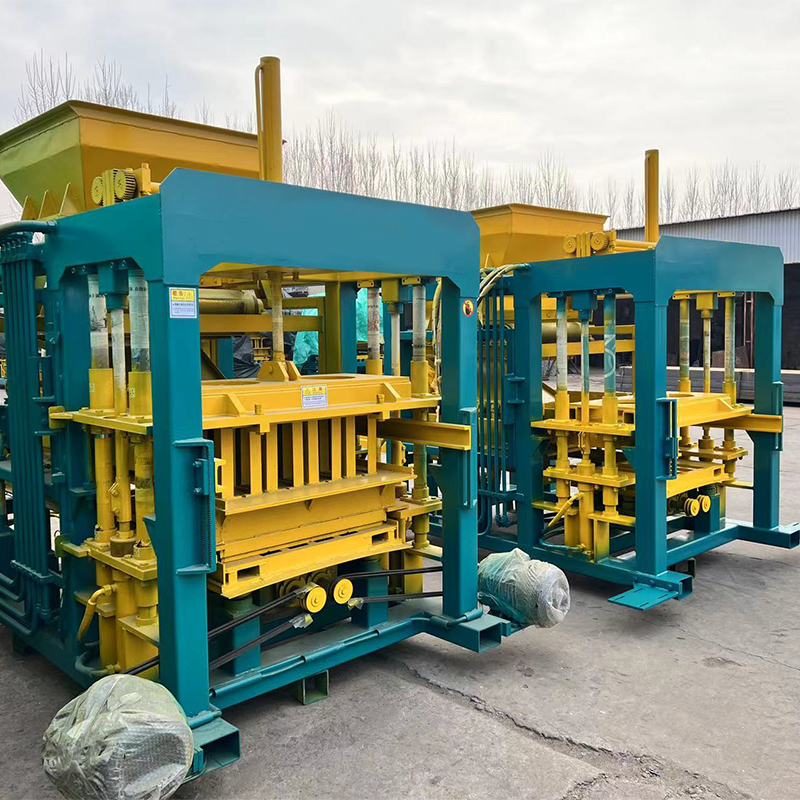
Strategies for Full-Automatic Block Manufacturers to Meet Net Zero Emission Goals.
**Title: Paving the Sustainable Path: Strategies for Full-Automatic Block Manufacturers to Achieve Net Zero Emissions**
**Introduction:**
In an era of increasing environmental consciousness, industries worldwide are committing to sustainability goals, and full-automatic block manufacturers are no exception. As key players in the construction sector, these manufacturers can play a pivotal role in mitigating environmental impact. This article explores strategies for full-automatic block manufacturers to embrace sustainability and work towards achieving net-zero emissions.
**I. Comprehensive Environmental Impact Assessment:**
Before implementing sustainability strategies, manufacturers must conduct a thorough environmental impact assessment of their operations. This includes evaluating energy consumption, raw material extraction, manufacturing processes, and waste generation. Understanding the environmental footprint is the first step towards formulating effective strategies.
**II. Energy Efficiency Measures:**
One of the most significant contributors to emissions in manufacturing is energy consumption. Full-automatic block manufacturers can adopt energy-efficient technologies, such as advanced automation systems and energy recovery mechanisms, to minimize their carbon footprint. Investing in renewable energy sources, such as solar or wind power, can further reduce reliance on non-renewable energy.
**III. Sustainable Material Sourcing:**
The choice of raw materials significantly influences the environmental impact of full-automatic block production. Manufacturers should prioritize sustainable sourcing practices, opting for materials with lower carbon footprints and exploring recycled or locally sourced alternatives. Transparently communicating these choices to consumers can enhance the perceived sustainability of the end product.
**IV. Waste Reduction and Recycling Programs:**
Implementing waste reduction measures and recycling programs is crucial for achieving net-zero emissions. Full-automatic block manufacturers can design processes that minimize waste generation and implement recycling initiatives for materials such as concrete waste. This not only reduces emissions but also aligns with circular economy principles.
**V. Carbon Capture and Storage (CCS):**
Carbon capture and storage technologies can play a pivotal role in achieving net-zero emissions. Full-automatic block manufacturers can explore the integration of CCS systems within their manufacturing processes to capture and store carbon dioxide emissions. This proactive approach demonstrates a commitment to offsetting environmental impact.
**VI. Life Cycle Assessments (LCA):**
Conducting life cycle assessments of full-automatic block products helps identify opportunities for improvement across the entire life cycle – from raw material extraction to end-of-life disposal. This holistic approach allows manufacturers to pinpoint areas where sustainability measures can be implemented most effectively.
**VII. Continuous Technological Innovation:**
Staying at the forefront of technological advancements is essential for achieving net-zero emissions. Full-automatic block manufacturers should invest in research and development to identify and implement the latest sustainable technologies. This may include innovations in automation, energy-efficient equipment, and eco-friendly additives for block production.
**VIII. Collaboration with Stakeholders:**
Achieving sustainability goals requires collaboration with various stakeholders, including suppliers, distributors, and customers. Full-automatic block manufacturers can work closely with their supply chain partners to ensure sustainable sourcing. Collaborating with customers on sustainable construction practices and advocating for green building standards can further amplify the impact.
**IX. Certification and Transparency:**
Obtaining certifications from recognized sustainability organizations and transparently communicating environmental efforts to customers can enhance credibility. Certifications such as LEED (Leadership in Energy and Environmental Design) for green building practices can signal a commitment to sustainability, attracting environmentally conscious consumers and businesses.
**X. Employee Engagement and Training:**
Sustainability initiatives are most effective when embraced at all levels of the organization. Full-automatic block manufacturers should engage employees in sustainability efforts through training programs and awareness campaigns. Employee involvement fosters a culture of environmental responsibility, driving collective efforts towards net-zero emissions.
**Conclusion:**
As the construction industry navigates towards a more sustainable future, full-automatic block manufacturers have a unique opportunity to lead the way in achieving net-zero emissions. By adopting a comprehensive approach that encompasses energy efficiency, sustainable materials, waste reduction, and technological innovation, these manufacturers can not only reduce their environmental impact but also contribute positively to the overall sustainability of the construction sector. The journey to net-zero emissions is a collaborative effort that requires dedication, transparency, and a commitment to continuous improvement, ensuring a greener and more sustainable future for the industry.
